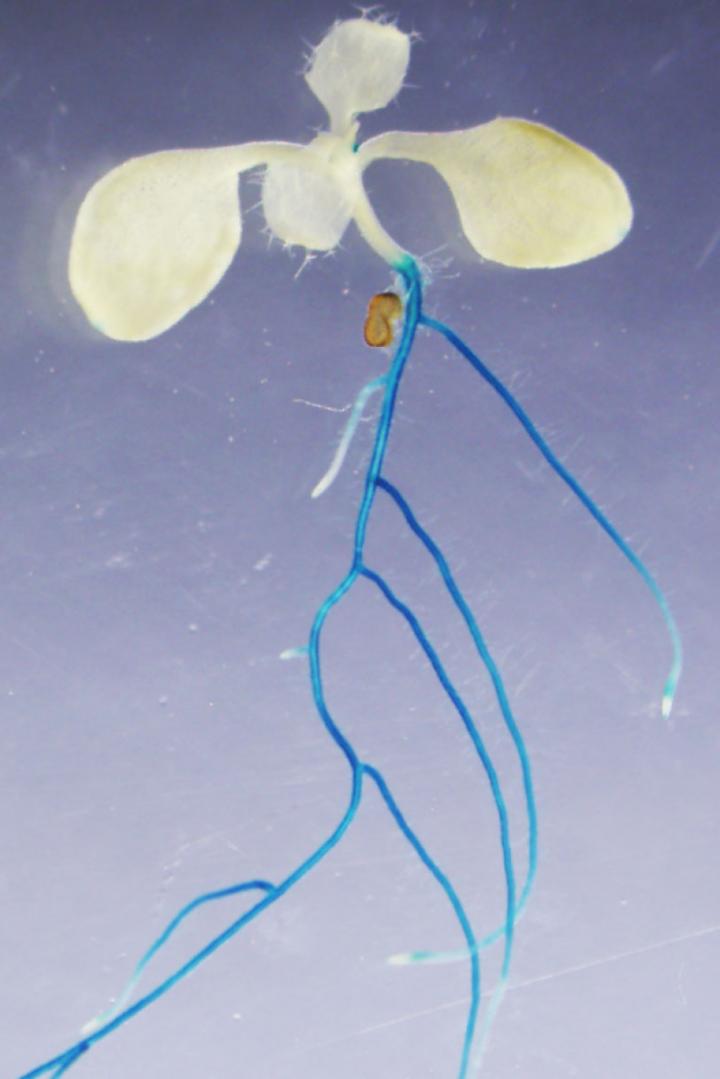
Study Finds Key Protein in Plant's Response to Nitrogen Deficiency
June 2, 2021| |
Researchers from Nagoya University in Japan have identified the protein that activates the nitrate uptake mechanism in plants during nitrogen starvation which could be key in improving crop survival under extreme conditions.
When there is enough nitrate concentration in a plant's environment, a plant can attain optimum nitrate uptake levels through a low-affinity transport system. However, when there is an insufficient amount of nitrates in the local environment, the plant needs to switch to a high-affinity transport system. Using Arabidopsis, the researchers found that the NRT2.1 protein is vital in the high-affinity transport system. Arabidopsis plants initially produce an inactive form of the NRT2.1 protein, which becomes active when the nitrates in the environment are scarce. The researchers pinpointed the protein At4g32950 that responds to nitrogen starvation and activates NRT2.1 Because of their recent findings, the researchers renamed At4g32950 into CEPD-induced phosphatase (CEPH).
The results of the study imply that CEPH is crucial in activating the plant's machinery to battle nitrogen starvation.
For more details, read the article from Nagoya University and the journal article in Nature.
| |
You might also like:
- Experts Find Genes Linked to Nitrogen Metabolism
- Researchers Test C and N Partitioning Bt Rice under Varying N Treatments
- Scientists Develop Nitrogen Use Efficient Rice
Biotech Updates is a weekly newsletter of ISAAA, a not-for-profit organization. It is distributed for free to over 22,000 subscribers worldwide to inform them about the key developments in biosciences, especially in biotechnology. Your support will help us in our mission to feed the world with knowledge. You can help by donating as little as $10.
-
See more articles:
-
News from Around the World
- International Research Team Identifies Pathway for Accelerated Plant Flowering in Low-Nitrogen Soils
- ISAAA Webinar: What is Gene Drive?
- Over 2,000 Nigerian Farmers Reaping the Benefits of Biotechnology
- Canada Approves HB4 Drought Tolerant Soybeans
- Study Finds Key Protein in Plant's Response to Nitrogen Deficiency
- GM Maize Adoption Increases by 31% Every Year in the Philippines, Benefiting More Resource-poor Farmers
- Scientists Call for International Investment to Tackle Major Wheat Losses
- Scientists Provides New Tool in Breeding More Climate-Resilient Cole Crops
-
Research Highlights
- Researchers from China, Czech Republic, and USA Report Reference Genome for Maize B Chromosome
- GE Potato Plant Responds to Stress by Glowing
-
Plant
- Orange Poinsettias Developed Using CRISPR-Cas9
- International Trade in Crops with New Breeding Technologies: The Australian Perspective
-
Read the latest: - Biotech Updates (February 18, 2026)
- Gene Editing Supplement (January 28, 2026)
- Gene Drive Supplement (February 22, 2023)
-
Subscribe to BU: - Share
- Tweet

